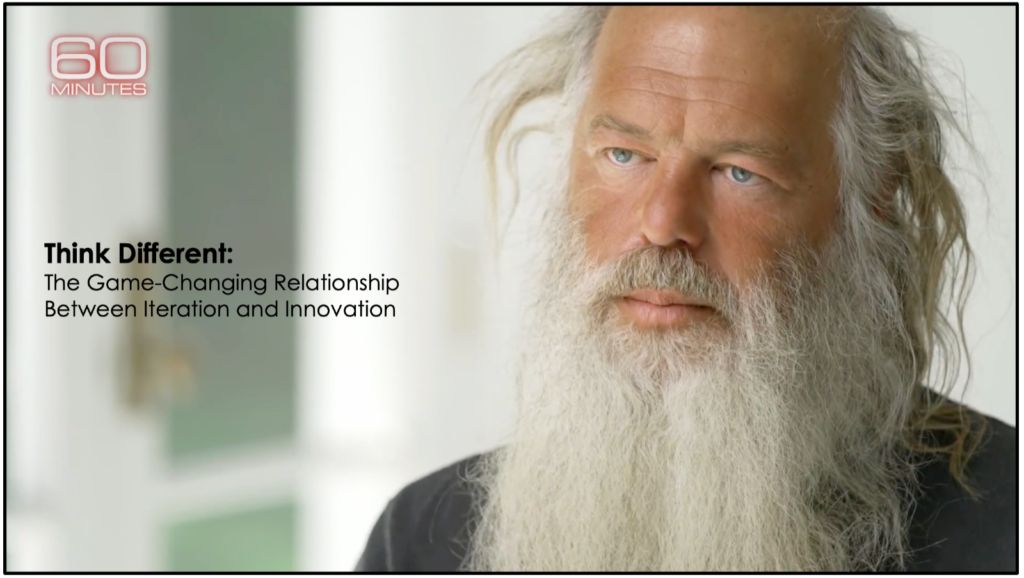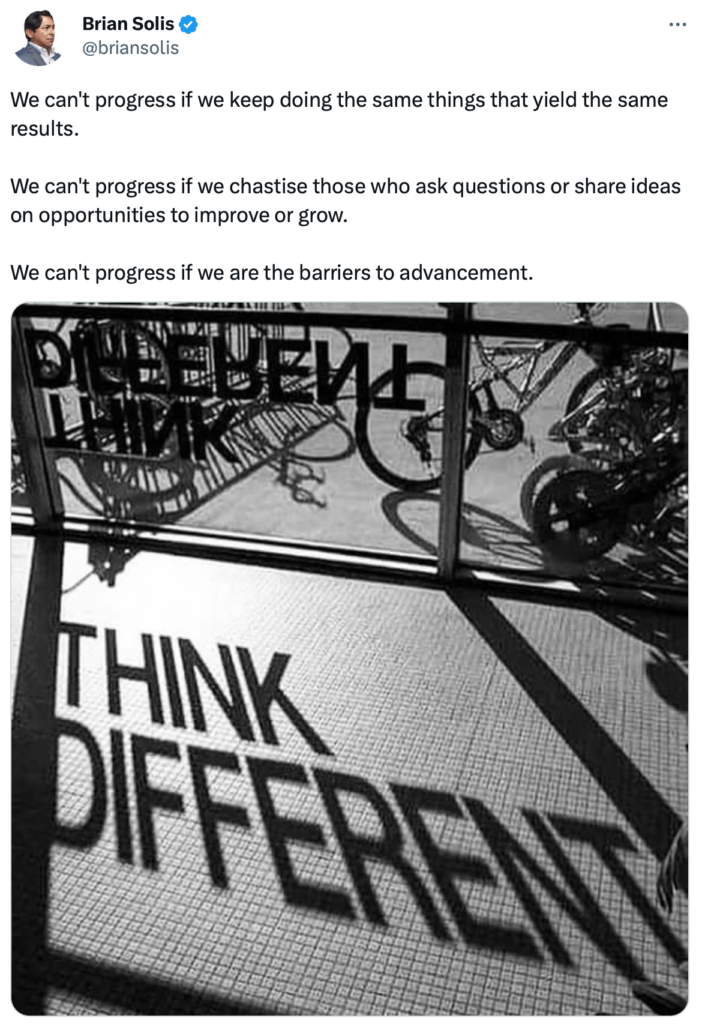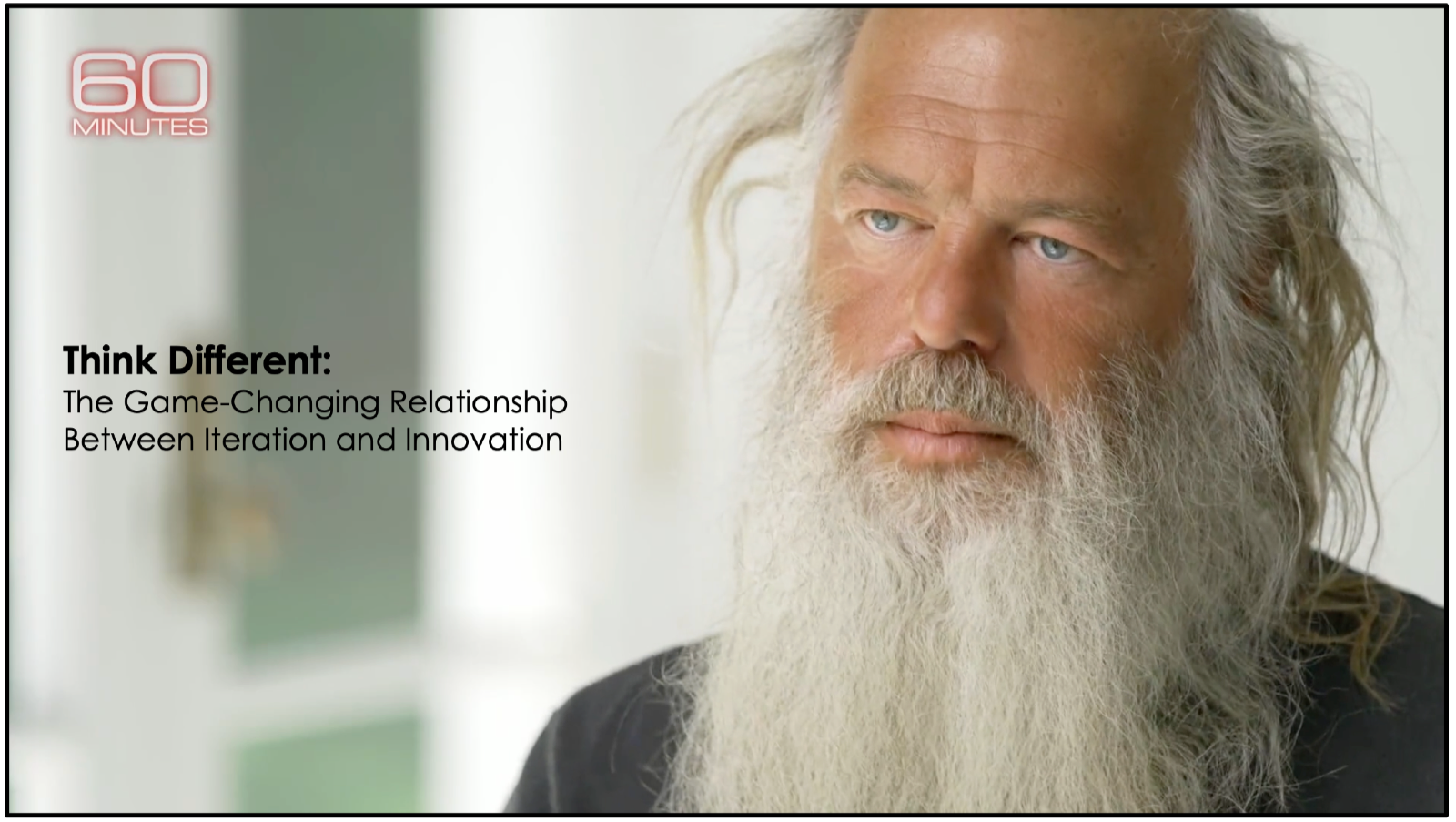
When most people describe innovation in their work or share their vision for “the art of the possible,” what they’re really describing is iteration. Let me explain…
Every company faces two opportunities forward. And a balance of the two requires investment and care to grow and thrive in a future that doesn’t stand still.
1) Iteration: Embracing the new to improve, enhance, augment, optimize, and scale what we do really well. Note: not everything you do today should come along with you into the future. Some things become outdated or outmoded. They require re-imagination for an evolving world where tastes, trends, times, behaviors, expectations, standards shift.
2) Innovation: Embracing the new to explore opportunities to create new value, test and learn, and grow ideas for business/market impact.
I’d like to share a 17-second clip with you that features legendary producer Rick Rubin. It’s a mind-changing perspective and a stimulus to “think different” (an homage to Apple for those who’ll suggest adding “ly”).
In this interview with 60 Minutes, Rubin shares his approach to music creation, which at first sounds counter-intuitive, almost ridiculous, in that it goes against everything we think we know, especially in how we think about our work.
“The audience comes last,” Rubin shares with Anderson Cooper on 60 Minutes.
Cooper’s response is reflective of what most are thinking in that moment, “What!? How could that be!?”
“The audience doesn’t know what they want,” he explains.
And here’s where it hits different.
“The audience only knows what’s come before,” he points out.
This is a powerful, and philosophical, example of how to think different.
It starts with reflecting on our next steps. Are we venturing into familiar territory or are we exploring the unknown. One is evolution. The other is revolution.

The audience only knows what’s come before.
Who’s our audience? Who is our inspiration? How can we best serve them? Where else can we take them?
While nothing in life is certain, there is a sense of assuredness or safety that comes in working toward the familiar, building upon it, enhancing and optimizing it, improving it. But that’s iteration. And the value cycle of iteration is finite. Meaning, it’s just a matter of time until margins shrink, growth stalls, and disruption comes for you.
Pioneering business coach, and my colleague in 100 Coaches, Marshall Goldsmith, wisely observed in his best-selling book, “what got you here, won’t get you there.”
It’s a powerful and humbling reminder that we need to 1) do things differently and 2) do different things to unlock the next stage of growth. This is innovation. It helps you tap into new value cycles.
The relationship between iteration and innovation is virtuous. It’s accepting the reality that what got us here won’t keep us here, and embracing continuous reinvention and value-creation, with the foresight of knowing what gets us there, also won’t keep us there.
In your work, identify opportunities to give your audience a better version of what they know. But remember, that’s iteration and its value is finite.
Also, explore opportunities to give your audience what they haven’t heard before. This is innovation. It’s elusive, but its reward is relevance and significance.
Like Yin and Yang, iteration and innovation must co-exist in harmony and perpetuity.
Ask yourself, before every decision, before every strategy and plan, before every move, is this iteration or innovation? And if it’s only one, it must be balanced by the other as part of that process. You, your organization, your culture, must have an appetite for both.
As Steve Jobs revealed about Apple’s innovation strategy, “Some people say give the customers what they want, but that’s not my approach. Our job is to figure out what they’re going to want before they do.”
Give yourself permission to be curious, to imagine, to wonder out loud. It’s how you think different, grow, and thrive, especially in an era of uncertainty.



.png#keepProtocol)




.png#keepProtocol)
More Stories
Biggest stock movers today: Okta, Snowflake, and more (NASDAQ:OKTA)
EU leader warns of risks of wider war; NATO rules out sending troops to Ukraine
Bitcoin soars to two-year high above $56,700 as halving event looms